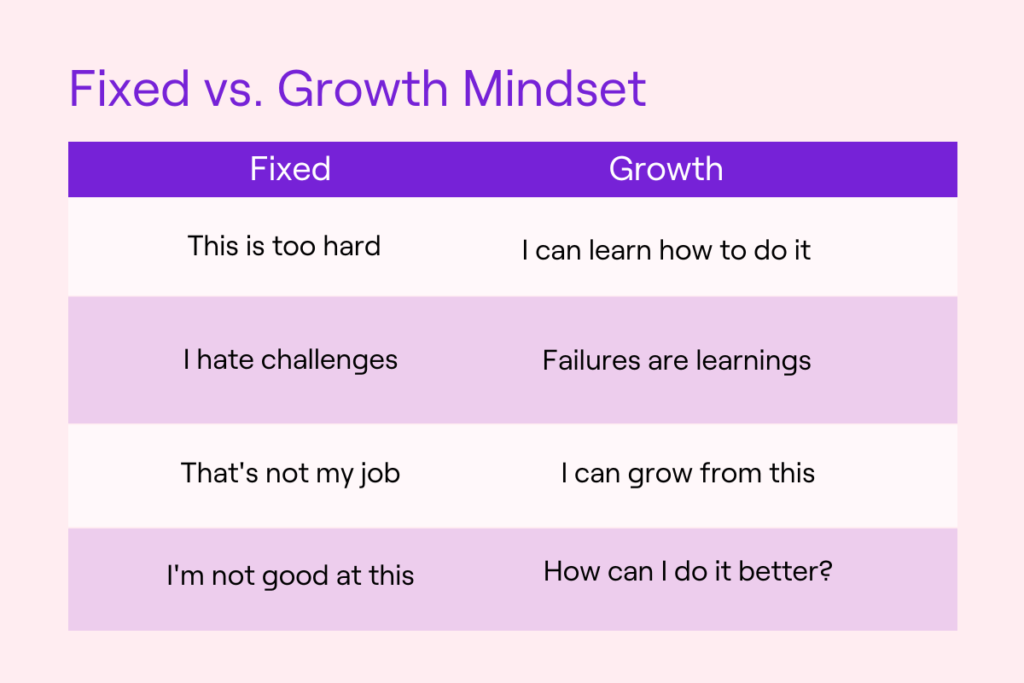
Once upon a time, it was expected that an employee would stay with one company for the majority of their working life. But times and tenures have changed dramatically when it comes to the modern career path.
Now, it’s truly the norm for employees to ‘pivot’ between industries, taking transferable skills with them. Whether it’s to gain new experience or due to a lack of career growth, changing roles is predicted – and in many instances, a positive trait of highly motivated people.
Employees are starting their job search for a career change
While you as an employer might feel nervous at the thought of your star players changing roles, smart employers will see this as an opportunity.
While we know that employees are on the move more frequently these days, the impact of Covid has definitely accelerated everyone’s plans. So much so that our survey results found almost one-third of Australian workers want their next role to be in a different organisation, but also a different industry.

Why are employees looking for new job opportunities?
We can speculate on a few reasons why so many employees are looking to change it up.
The pandemic has shaken up our priorities. Time away from hustle culture has made us rethink our priorities and our goals. We’ve had more time to explore our hobbies and interests, and may now be considering these as an alternative career path.
Whatever the reason may be, we’re seeing more career mobility than ever before. So how can we capitalise on this growing trend?
When it comes to finding great new candidates, it’s all about expanding your talent pool and spotting great applicants. One of the best ways to do this? Prime yourself to recognise transferable skills during recruitment.
Looking for more paths to a foolproof recruitment process? Check out our six tips.
What are transferable skills?
When you’re recruiting, it’s likely many candidates won’t fit the bill on paper, but are actually a great candidate for the job.
Even though they may have no direct experience in what you’re hiring for, they may have abilities and attributes that are perfect for the role.
Not every job will be appropriate to utilise transferable skills. For example, if you’re hiring a doctor – you’re obviously going to need a certain level of education, qualification and experience. But if you’re hiring someone for your sales team? It’s very possible that someone with little experience in sales could thrive in the role.
Looking out for transferable skills generally requires hiring managers and recruiters to reduce any non-essential demands within their job ads and job descriptions. So if the role doesn’t absolutely need that university degree or three to five years experience? Don’t say that it does.

Are transferable skills and soft skills the same?
Many transferable skills are also ‘soft skills’. Soft skills are generally defined as skills that make it easier for someone to work productively with others. They are often based around great communication and being able to positively influence those around you.
While many transferable skills are also soft skills, not all soft skills are also transferable skills. Let’s look at some of the most common examples of transferable skills to see how wide-ranging these are.
Which transferable skills should employers look for in candidates?
Let’s work through this essential transferable skills list.
1. Creative thinking
Many people love the chance to be creative, yet a whopping 75% of people believe they aren’t living up to their creative ability. While you might think that being creative is only relevant to roles in the arts or design industries, that couldn’t be further from the truth.
Creative thinking refers to the way someone handles a problem and how they solve it. It’s the notion of thinking outside the box and embracing innovation to solve business problems, which can be applied to almost any industry and role.
Looking for creative inspiration? Tap into your childlike brain and learn more about creativity at work.
2. Strong attention to detail
No one likes making mistakes, but in today’s fast-paced working world, they’re bound to happen from time to time. However, having strong attention to detail can help reduce those errors, no matter what job you’re doing.
Having someone who has a strong eye for detail can instil trust in employers as any mistakes can be picked up before it’s too late.
This is especially valuable in industries where details really matter, like public or media relations, or administrative roles.
3. The ability to adapt
Think back to the start of 2020 when the world was thrown into a spin. Chances are, you had to think of new ways to sell your product and communicate with clients. Maybe it was changing your product offering altogether or switching everything to digital.
If there’s one thing the pandemic has highlighted is that businesses who were able to adapt are doing better than those who weren’t prepared to be flexible. One positive over the past two years has been that many people had a chance to flex just how adaptable they are and pivot in ways they didn’t think possible.
The ability to make the most of the current situation at hand and run with it? That makes a star candidate.

4. Strong communication skills
Communication is everything, making it one of the most sought-after transferable skills of today. Being able to communicate effectively is a skill that’s always in demand, and a huge asset for candidates looking to pursue a new role or industry.
The ability to clearly and succinctly articulate something ensures there’s little room for confusion, a skill that many employers are looking for. Bringing charisma and people skills to a role can also make a candidate stronger at negotiation and sales.
Looking to improve your own interpersonal skills? Here are 12 techniques for better communication in the workplace.
5. Emotional intelligence
Emotional intelligence (EI), otherwise known as EQ (emotional quotient), can be defined as the ability to perceive, understand and manage one’s feelings and emotions.
Someone who is emotionally intelligent usually displays these five distinct traits of EI:
- Self-awareness – they have a conscious knowledge of their own character
- Self-regulation – they are able to regulate their own behaviour and emotions, without intervention from others
- Internal motivation – people who engage in behaviour from their own will power, because it’s satisfying to them
- Empathy – a person who has the ability to understand and share the feelings of another
- Social skills – someone with good social skills is competent at communicating and interacting
Emotionally intelligent employees are more likely to keep their cool under pressure and act as rocks for their team. This could lead to them making better business decisions and displaying an overall higher level of job performance, making it a highly transferable skill.
6. Critical thinking skills
Critical thinking is another great skill to have in your toolkit. The process of thinking critically allows for logical thinking and thought processing. If you’ve got a team of critical thinkers, you’re already lightyears ahead of your competition.
Critical thinking requires the decoding of evidence-based thoughts to understand different outcomes. It involves evaluating information and making strategic decisions to solve a challenge.
Critical thinkers are essential to business success and a skill that has been and will be, in demand for a very long time.
7. Growth mindset
Employees who have a growth mindset are forward thinkers and extremely motivated to push themselves to try new things. They think outside the box and take each failure as a learning opportunity that will help them later down the track.
The pandemic acted as a catalyst for identifying those with fixed and growth mindsets. Those with growth mindsets would have stepped up and shown initiative. They would have easily adapted into unfamiliar terrain. Those with fixed mindsets would have been more likely to take a back seat or retreat.
We recommend you embrace people who have a growth mindset and see them for what it is – opportunity.

8. Analytical skills
Like with problem-solving and critical thinking, strong analytical skills are highly transferable. The ability to break down a complex problem into more manageable parts is something that can benefit all teams in all industries.
Additionally, the ability to make data driven decisions and arguments is becoming an increasingly in-demand asset. As many companies switch over to digital systems and tools that offer valuable analytics, being able to turn those numbers into insights is an invaluable skill.
9. Leadership skills
Have you ever noticed that some people in senior leadership positions often seem to jump between seemingly unrelated companies?
A CEO might lead a food brand, then make the switch to a business in sports or technology. How can they do this without having the preexisting knowledge of the sector?
Great leaders are able to analyse a market, think strategically, identify their team’s skills, delegate and listen. If they have these leadership skills, they can be dropped into a management role in most industries and thrive.

10. Technical skills
The term ‘technical skills’ can cover a very broad range of abilities. As defined by learning platform Coursera; “Technical skills are the specialised knowledge and expertise required to perform specific tasks and use specific tools and programs in real world situations.”
Digital skills would be some of the most relevant technical skills for employees who are looking to switch industries. Candidates who bring digital knowledge like computer skills, data analysis or knowledge around coding should instantly have a competitive edge for roles.
11. Problem-solving skills
It takes a talented person to take a complex situation and find actionable solutions.
To assess if your candidate has these skills, ask them about ways that they have approached complicated situations to solve problems in the past. Get them to talk you through their actions step-by-step.
If they can thoughtfully deconstruct their actions and show you that they took initiative to solve the problem, you could be onto a great thing and one of the most powerful transferable skills.
12. Time management skills
Time management is essential for employees who work within fast-paced environments. When you’re churning through a large workload, juggling the needs of different clients or working to deadlines – being able to properly manage your day is essential.

13. Project management skills
Keeping track of moving parts, pushing actions forward, chasing up stakeholders – these are all skills of a great project manager.
Project management combines organisational skills with communication skills. It also generally requires the person to be familiar with documentation and work management software.
It’s a unique skill set that can be difficult for many people to adopt, so if a candidate has these skills, get them onboard asap!
14. Writing skills
We often prioritise verbal communication over written communication during the recruitment process, which could lead us to overlook great talent.
Writing skills are not just helpful for roles that have some kind of creative writing or publishing element (content or technical writing, media, internal communications), they are also useful when it comes to managing internal and external relationships.
Especially in this digital world, where we’re emailing and instant messaging much more than we are picking up the phone, being able to communicate in a concise manner can be great for relationship building and productivity.
15. Listening skills
Listening skills are incredibly underrated. Being a good listener not only means that you’re able to learn and understand information easily, it can also help you be a kinder and more empathetic colleague and leader.
No matter where someone is in their career, if they can listen – they can learn.

16. Positivity
Ever heard of ‘the power of positive thinking’? It’s a cliche for a reason.
Positivity at work can help your employee reduce their stress levels and stay motivated, even on challenging days. But it’s not only great for the individual.
‘Social contagion’ is the phenomenon by which feelings and sentiments spread through groups of people. Essentially, we influence the moods of those around us. So if you’ve found that ray of sunshine person, they will not only be delightful to work with, but will likely also lift up others in their team.
Take your recruitment digital
Recruitment can be a time-consuming process. The time it takes to fill open roles, mixed with the mountains of admin, is enough to give anyone a headache. But, now there’s an easier way to manage your hiring.
Employment Hero can streamline your entire recruitment process from attracting candidates right through to onboarding. It’s recruitment and HR, just easier.
Get in touch with one of our small business specialists today to learn more.
101 Remote Interview Questions


